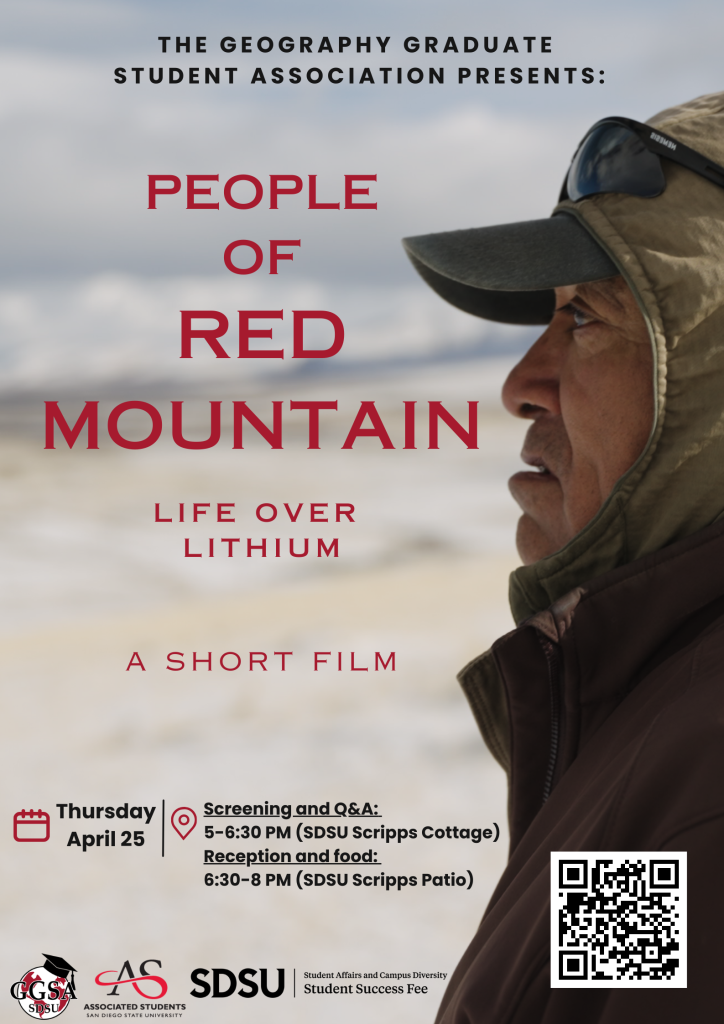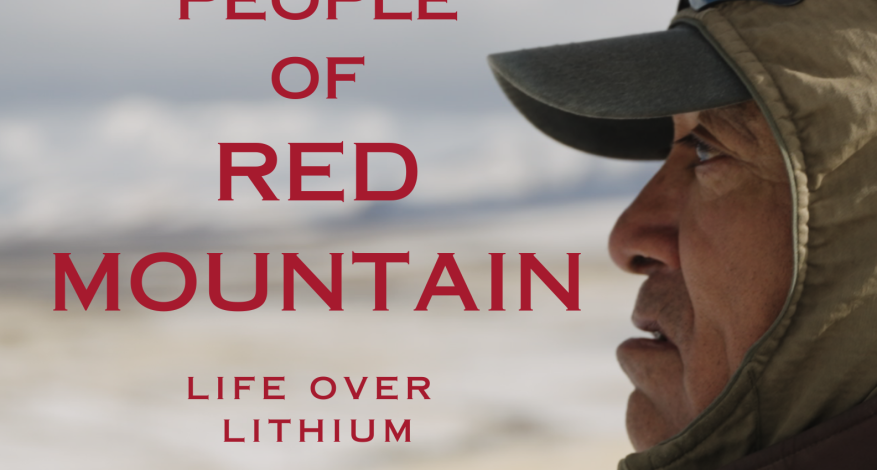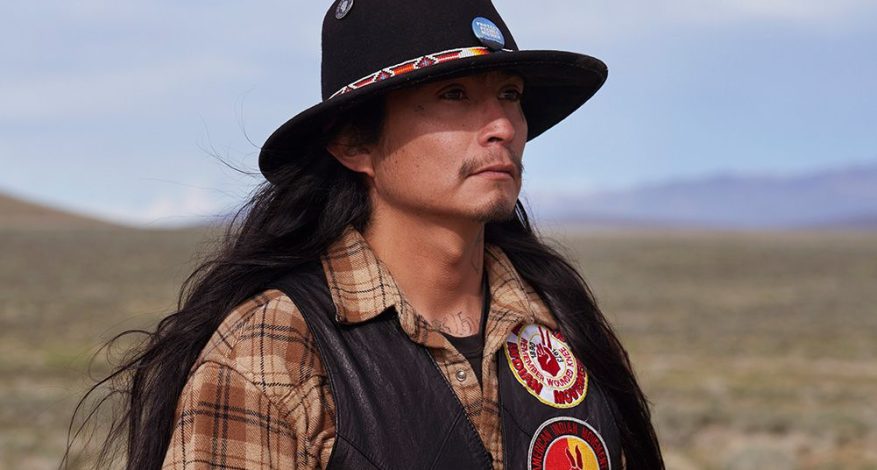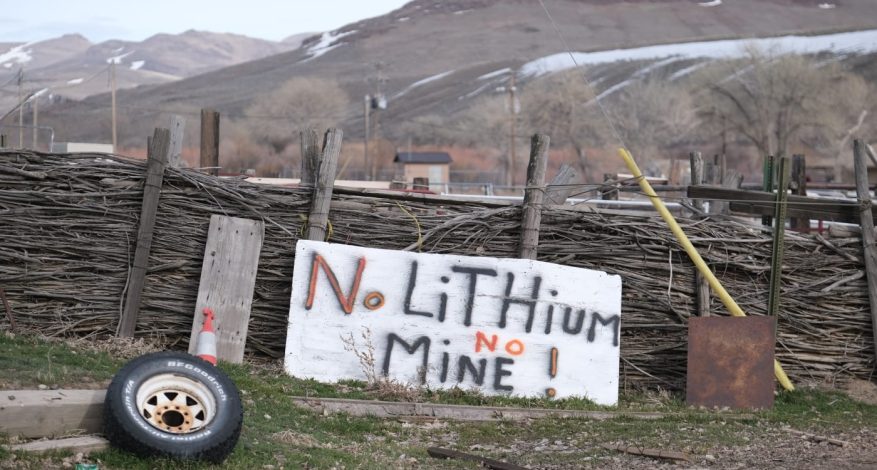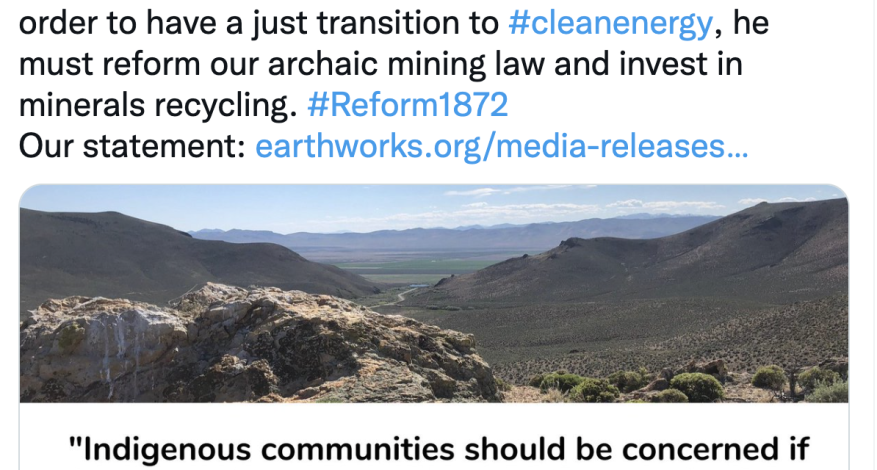An excerpt from an article originally posted by NBC News.
Opponents of the mine draw on both oral and recorded history to establish its spiritual importance to the Shoshone and Paiute people. According to Gary McKinney, tribal oral history says soldiers massacred around 30 Paiute tribal members at Thacker Pass in 1865.
A contemporary newspaper account and a 1929 book, both cited in court filings, described an early-morning raid on a Paiute camp in September 1865 by the 1st Nevada Cavalry Battalion that killed women and children. The article called it an “Indian fight,” and said it left at least 31 Indians “permanently friendly,” meaning dead, and said that tally was probably low.
McKinney says that tribal members go to Thacker Pass to gather roots, medicinal herbs and berries for traditional ceremonies and rituals. Like many members of his tribe, he believes the valley, also known to Paiutes as Rotten Moon, is a “final resting place” for his ancestors.
Members of other Indigenous groups far from Thacker Pass have expressed support for McKinney and the opponents of the mine. To raise awareness, activists from around the U.S. ran, biked, rode horses and drove 2,600 miles from Nevada to New York.
You can read the full article on the NBC website.
